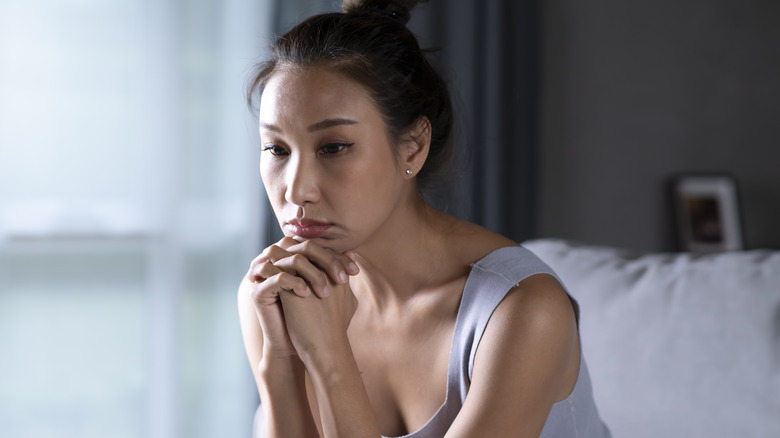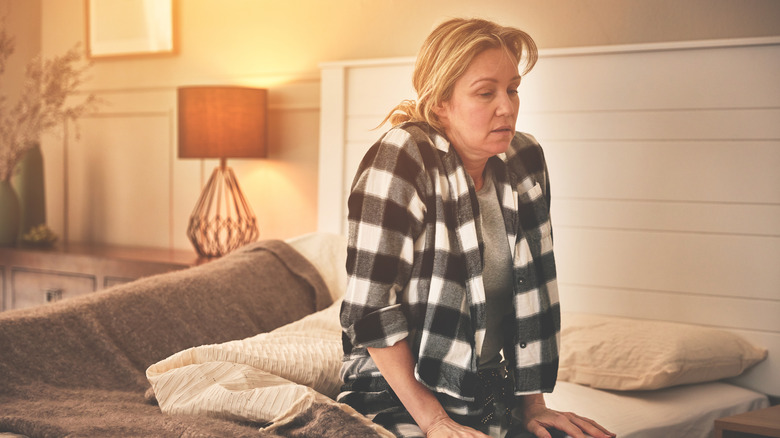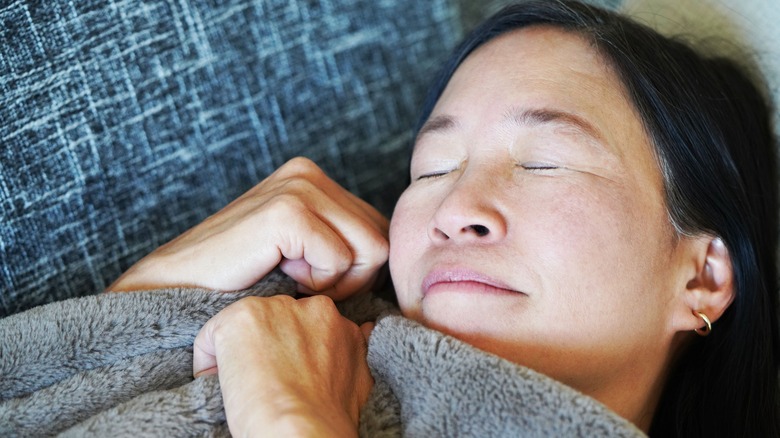Menopause And Poor Sleep Can Go Hand In Hand. Here's Why
Hot flashes, mood swings, and weight gain are all popular topics when it comes to the conversation around menopause. Just as common of an experience, but not necessarily as talked about, is disturbed sleep. Women's Health Concern looked at various studies and found that between 28% and 60% of menopausal people struggle with sleep. Tossing and turning and tired mornings are all too familiar for many of those going through the onset of menopause.
The combination of aging and menopause can be a disaster for your sleep. Inadequate rest can result in digestive issues, anxiety, depression, and an increased risk of chronic illness and cardiovascular disease. Finding ways that help you get that rest is crucial during this phase of your life.
"The entire body takes advantage of sleep, but sleep is really how the brain gets reset for the next day. Sleep restores the brain," Rafael Pelayo, MD, a professor and sleep specialist at the Stanford Sleep Medicine Center in California, told Everyday Health.
Understanding menopause
During menopause, the ovaries stop generating eggs and produce less estrogen and progesterone hormones. This decrease in production isn't necessarily the cause of sleep issues, but researchers believe it is related. We do know that lower estrogen levels can trigger night sweats, which can cause women more stress as opposed to hot flashes in general, according to a 2022 University of Massachusetts study.
"We know that sleeping disturbances are one of the biggest detriments for women going through menopause, but these results are unique because they show that women experiencing night sweats, rather than just hot flashes, may be at an even bigger disadvantage," Sofiya Shreyer, lead author of the study and Ph.D. candidate at the University of Massachusetts, told the school.
A 2019 study by the Canadian Longitudinal Study of Aging set out to discern changes in sleep due to menopause from changes in sleep due to aging in general. It found that sleep onset insomnia — difficulty falling asleep — and obstructive sleep apnea were related to menopause. Meanwhile, satisfaction with sleep, hours slept, and sleep maintenance insomnia — difficulty staying asleep — were associated with aging.
How to improve sleep
We've established that sleep is important, and menopause can threaten restful nights. Thankfully, as you prepare yourself for menopause, there are things you can do to increase your chances of falling asleep.
"Just as we recommend that kids have a regular bedtime and wake time, trying to do that as an adult also helps your body know when it's time to go to bed," Grace Pien, M.D., M.S.C.E., an assistant professor at John Hopkins Sleep Disorders Center said to John Hopkins Medicine.
Additionally, finding activities that relax you, such as reading before bed or meditating; avoiding spicy foods, alcohol, and caffeine; exercising; and keeping the bedroom at a low, cool temperature are all things you can integrate into your daily life. If that's not enough, speak with a healthcare provider about the potential of hormone therapy or taking serotonin reuptake inhibitors (SSRIs).
Menopause can be tricky to navigate. Figuring out what works for you and your body is essential in minimizing the symptoms you may experience and getting the rest you need.


